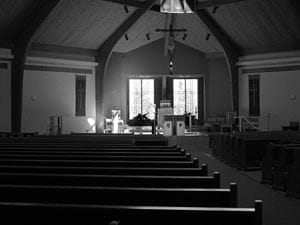According to "The Blazing Center", spiritual abuse is when "a spiritual leader, such as a pastor, uses their power and influence to manipulate and control people. A spiritual abuser is not concerned with promoting the well-being of those he serves. Rather, he’s only interested in how people can further his plans and agenda." Spiritual abuse happens to the mind and effects how a person thinks. It is very easy to become blinded by an influential pastor. Spiritual abuse takes the victim’s thoughts captive by trying to manipulate them to believe lies.
These types of leaders cross the line from being a shepherd of the Lord to a toxic pastor. They are difficult to spot, but when you familiarize yourself with the signs you will be equipped to identify who is and isn't a genuine leader. The majority of church leadership is good people who are only trying to protect their flock from the wrong influences of Satan, but others have evil ways with a dark agenda that refuses any accountability. Here are the signs.
Critics are dismissed.

What often happens is that pastors and spiritual leaders conflate God’s plans with their own plans. What often starts as good ambitions can curdle into spoiled, selfish ambitions, which then leads to spiritual abuse. Sadly, most bad pastors refuse to believe that anything is wrong with their leadership style or the way things are headed. They remain convinced that everything is great and that there is nothing that ever needs to change in their ministry.
Not only are critics cut out of the spiritual abuser’s inner circle, they are also isolated. They do everything they can to isolate and discredit critics, smearing their character, accusing them of lacking faith, saying their understanding of the Bible is wrong, and even spreading lies about them. The pastor guilty of spiritual abuse wants his followers to have nothing to do with critics and seeks to discredit them as ungodly sinners who are holding back God’s plans.
Expectation of loyalty and blind trust.

Culture of fear and shame.

Often there is no grace for someone who fails to live up to the church’s or ministry’s expectation. If someone steps outside of the often-unspoken rules, leaders shame them into compliance. If the person will not comply, they will be asked to leave the church. They often have their circle of influence take on this task, silencing critics and making sure everyone stays in line.
Leaders can’t admit failure, but often search out failure in others and uses that knowledge to hold them in fear and captivity. They often quote scriptures about not touching God’s anointed, or bringing accusations against an elder. Yet they often confront sin in others, particularly ones who bring up legitimate biblical issues.
They are prideful and materialistic.

Uses exclusive language.

Pastors that are manipulative will use exclusive language, saying things like “we’re the only ministry really following Jesus” or “we have all the right theology.” They do so to make you feel like if you left, you wouldn't be able to get the real Word of God. They believe their way of doing things, thinking theologically, or handling ministry and church is the only correct way and everyone else is wrong, misguided, or stupidly naive.
Furthermore, they use exclusive language inside of the church itself. Where followers close to the leader or leaders feel like lucky insiders and everyone else is on the outside, though they often long to be in that inner circle. Though it’s actually a very toxic environment, these pastors are able to convince everyone that being a part of the elite is desirable.
Refusing Accountability For Their Actions

Removes diversity from the church.

Abusive pastors are usually controllers. They only want to surround themselves with people that agree with them, or "yes" people. They like to micro-manage their organization, congregation and employees and will become annoyed when they can't. There is one way to do things, and it is their way.
Therefore they will clear out anyone that they don't feel like they can control. Anyone with their own thoughts on how to run the ministry, anyone that has other interpretations of scripture, and the like will all be cast aside. They will have no opportunities for leadership positions, and the pastor will say they are combative if they try to offer up different solutions to problems in the church. Everyone will be expected to be like drones, only doing the exact movements the pastor wants.
